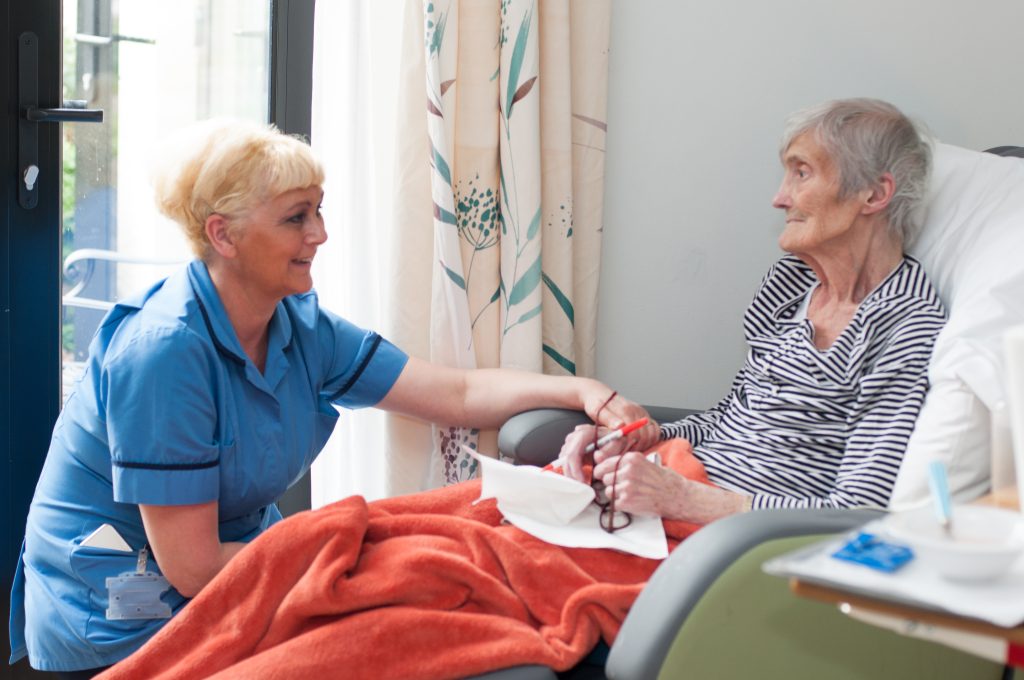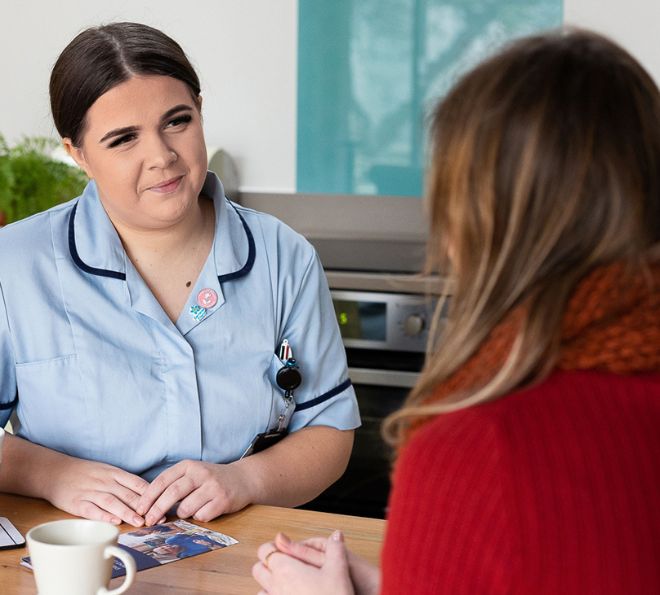World Alzheimer’s Day – How Dorothy House is supporting Dementia patients
What is Dementia?
While people often believe that Dementia is a normal part of ageing, only affecting memory, it is actually a progressive disease that damages the brain. The symptoms of Dementia worsen over time and include:
- memory loss
- confusion and requiring support with daily tasks
- difficulty with language and understanding
- changes in behaviour and personality
The deterioration in mental ability is much more severe in someone suffering from Dementia than someone who is simply ageing.

Dementia doesn’t just affect the elderly
Most often, Dementia occurs in patients over the age of 65. However, early onset Dementia can affect people much younger, even children. Around 70,000 younger people in the UK currently suffer from the disease and it can often be more difficult to manage, as working age people may experience employment issues, have significant financial commitments such as a mortgage and have a younger and more dependent family.
Interview with Dr Hilda Hayo, CEO of Dementia UK
In this fascinating, passionate and wide-ranging interview, Dr Hilda Hayo, CEO of Dementia UK, outlines her top five myths about Dementia and reveals the tragic lack of support for Early Onset Dementia.
Dr Hayo also describes the complicated pathways to diagnosis and the catastrophic impact on their relationships, professional lives and financial income. Her interview is a vital watch especially when outlining the crucial role of Admiral Nurses in caring for Dementia patients and supporting their families.
Dorothy House Admiral Nurse – Esther
As part of our Dementia care at Dorothy House, our Admiral Nurse, Esther, is working alongside the Admiral team at Dementia UK to access resources for people living with dementia and their families.

“I’m Esther, the new Admiral Nurse for Dorothy House. My role is supported by Dementia UK. This enables everyone across the Hospice and the patients and families we support, to access their resources.
I am passionate about ensuring all people living with Dementia, and their carers, have access to timely, appropriate and personalised care, including advanced care planning, with their decisions being heard and acted on.”
Read the full interview here.
Dementia carer training at Dorothy House
Dementia training is essential for all Dorothy House carers. The training offered within the Tulip Standard provides the essentials that is built on in future training days.
The training begins with the physiology of the disease, as it is important to know how the brain functions in order to understand the symptoms and progression of Dementia. This insight and discussion allows our carers to appreciate why people have different experiences of the disease, such as Terry Pratchett, who wrote a best seller after being diagnosed with Dementia at the age of 59, yet struggled with everyday tasks, or why a person’s personality might suddenly and noticeably change. Understanding symptoms and why they occur allows us to support our patients and their families more effectively.
The focus of the training then shifts to consider what we can do to enable and support people in our care. It explores and discusses how to make life easier for patients, looking at both physical and emotional needs.
Finally, it addresses communication; tools that can be used and how we can work with patients and their families when there is emotional distress. These are the first steps on an essential Dementia training journey for our carers.

Dorothy House Dementia care
To access resources for Dementia patients and carers, take a look at our Dementia care page.
- Share this page:
- https://www.dorothyhouse.org.uk/?p=117595